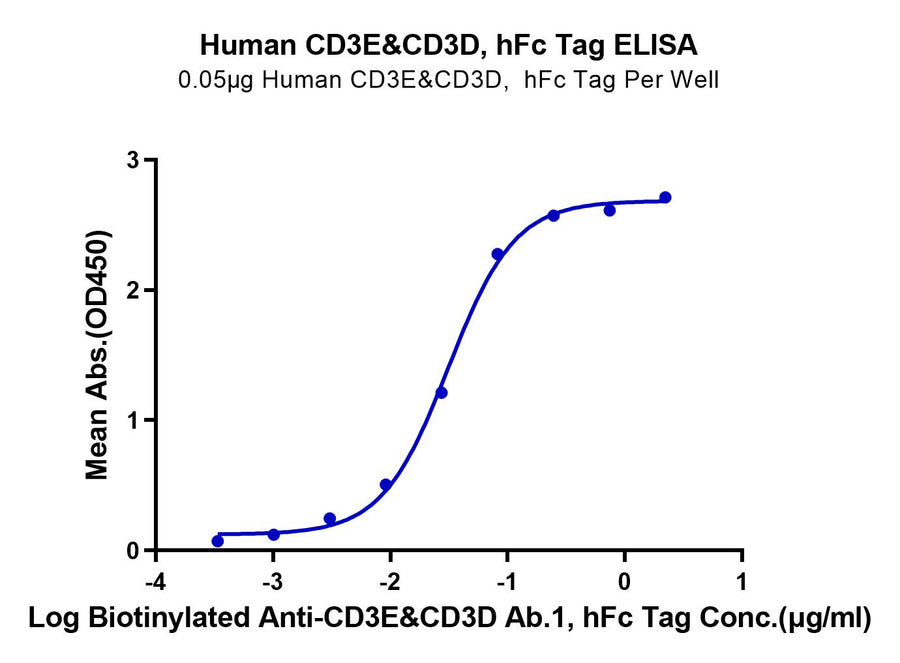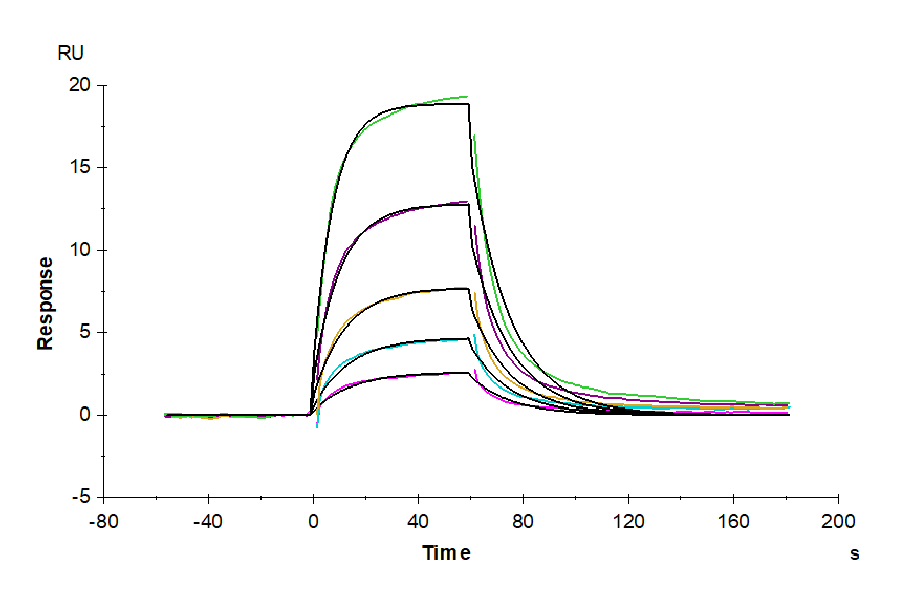Product Description |
Recombinant Mouse PILRA Protein is expressed from HEK293 with hFc tag at the C-Terminus.It contains Glu32-Val197. |
Product Background |
Alzheimer's disease (AD) is a neurodegenerative disease characterized by a progressive decline in cognitive performance; Mild Cognitive Impairment (MCI) is instead an objective decline in cognitive performance that does not reach pathology. Paired immunoglobulin-like type 2 receptor alpha (PILRA) is a cell surface inhibitory receptor that was recently suggested to be involved in AD pathogenesis. In particular, the arginine-to-glycine substitution in position 78 (R78, rs1859788) was shown to be protective against AD. |
Product Category |
Recombinant Protein / Antibody discovery |
Protein |
PILRA |
Synonyms |
PILRA; FDF03; PILRalpha; PILR-alpha |
Accession |
|
Species |
Mouse |
Biotinylated |
no |
Amino Acid Range |
Glu32-Val197 |
Molecular Weight |
The protein has a predicted MW of 45.4 kDa. Due to glycosylation, the protein migrates to 70-75 kDa based on Bis-Tris PAGE result. |
Product Tag |
C-hFc |
Expression System |
HEK293 |
Purity |
> 95% as determined by Bis-Tris PAGE;> 95% as determined by HPLC |
Endotoxin |
Less than 0.1 EU per ug by the LAL method. |
Form |
Lyophilized |
Shipping |
Shipped at ambient temperature. |
Formulation |
Lyophilized from 0.22um filtered solution in PBS (pH 7.4). Normally 8% trehalose is added as protectant before lyophilization. |
Reconstitution |
Centrifuge the tube before opening. Reconstituting to a concentration more than 100 ug/ml is recommended. Dissolve the lyophilized protein in distilled water. |
Stability And Storage |
-20 to -80°C for 12 months as supplied from date of receipt.;-80°C for 3 months after reconstitution.;Recommend to aliquot the protein into smaller quantities for optimal storage. Please minimize freeze-thaw cycles. |
Related Products
Have more questions?
Check out our Frequently Asked Questions page for more details about product specifications, ordering, and shipments.
Contact Us
More from Antibody Drug Discovery Proteins
Recently viewed

























